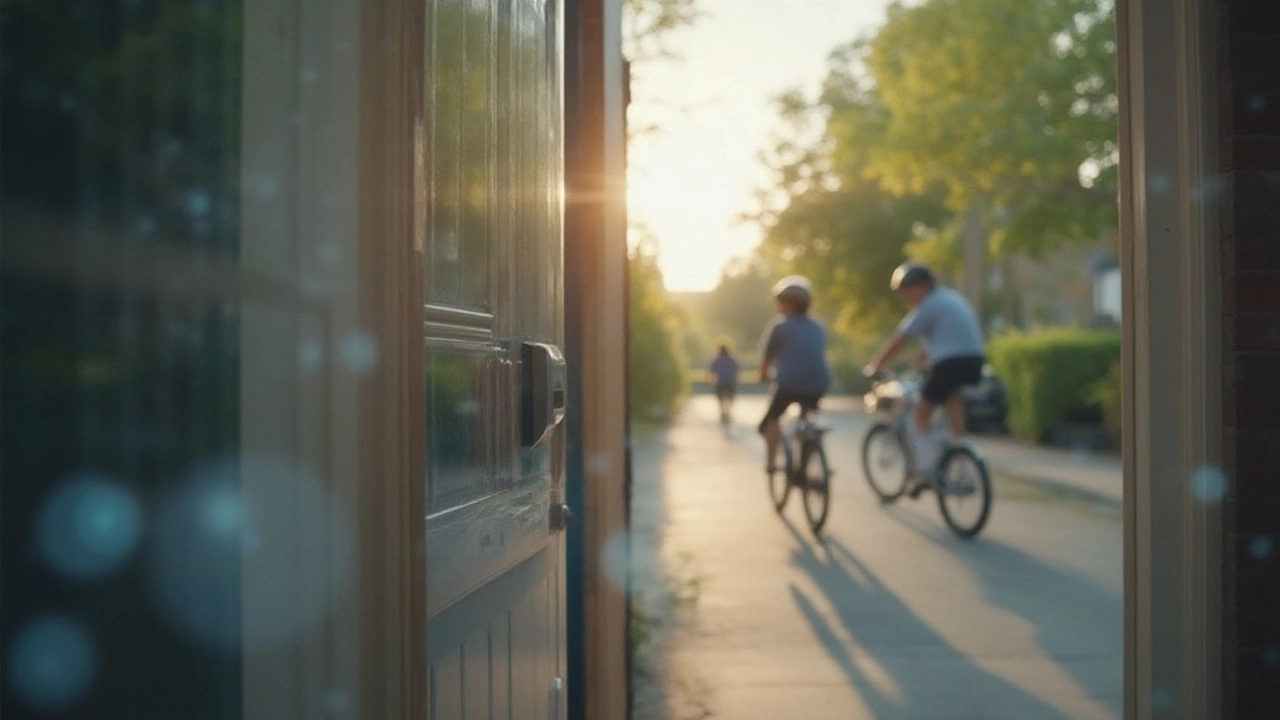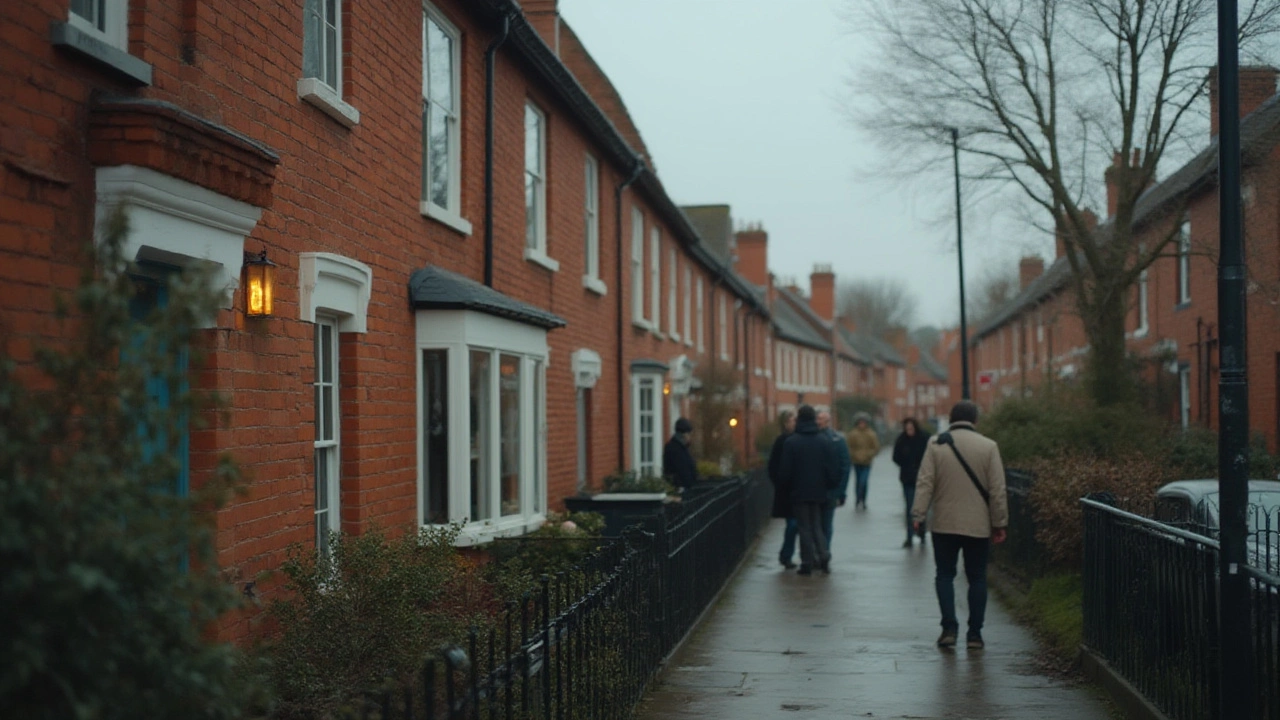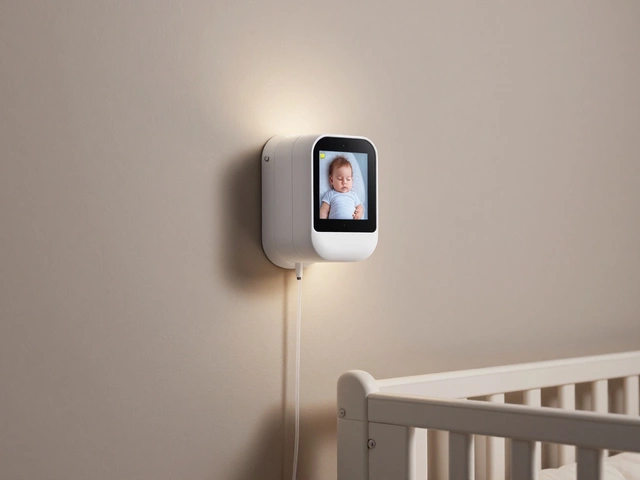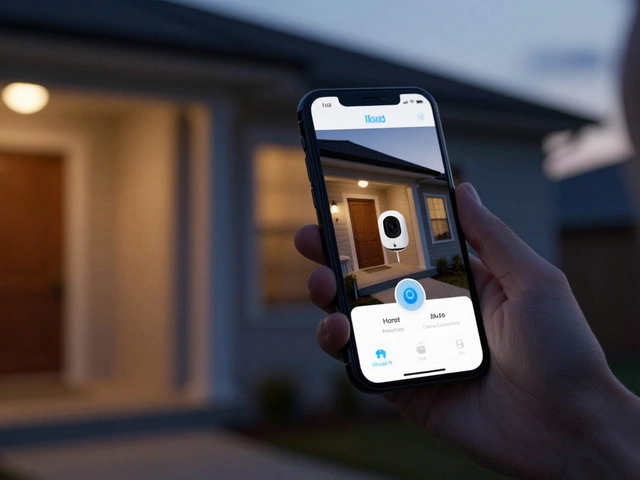Once you fit a video doorbell—like a Ring—onto your front porch, it’s easy to think you’ve scored a win for home security. Peace of mind, right? Not always. The moment your neighbor walks past, spots your new device, and starts to wonder if their late-night search for the garbage bins is now stored in glorious HD, things get complicated. That’s the reality in Wellington, Auckland, or anywhere else cameras meet gardens. This topic isn’t just dinner-table debate material anymore—lawsuits and neighbour disputes over Ring doorbell cameras have actually made headlines. So what does that mean for you, your neighbours, and the all-seeing eye on your front porch?
What Are Your Legal Rights (and Your Neighbour’s)?
Let’s clear one thing up right away: in New Zealand, the UK, Australia, and most other countries that love smart tech, you absolutely do have a right to install a video doorbell on your own property. Property owners and tenants are all allowed to protect their homes—it’s not a wild west thing, it’s in the law. But here comes the twist: you don’t get a blank cheque to record whatever you want, wherever you want. If your doorbell captures only your private front doorstep or entryway, you’re usually fine. But when its lens swallows your neighbour’s front yard, driveway, garden, or even their living room view through a window, the privacy alarms start ringing.
Case law is bringing this out into the open. A 2021 case in the UK High Court (Dr. Fairhurst v Woodard) ruled against a homeowner, stating the Ring camera’s setup was too intrusive because it filmed large chunks of the neighbour’s property and parts of public footpaths. The neighbour didn’t even need to prove the videos had been misused—just that their day-to-day privacy had been undermined. New Zealand’s Privacy Act 2020 follows the same vibe: yes, you can monitor your own property, but if you capture, store, or share images or videos of other people, you must show it’s reasonable and necessary for your own protection. If not, you could be on thin ice.
Plus, there’s the Harmful Digital Communications Act. If your camera records audio or conversations, then uses or shares them without consent, this could be seen as "harmful digital communication"—and the consequences are serious. So yes, your neighbour 100% can complain, and the Human Rights Commission or Office of the Privacy Commissioner might just agree. It isn’t just about what you record, but how it affects your neighbour’s sense of privacy and security.
Every town council’s got its own little quirks, too. Some states in Australia require very specific placement, and there are councils in the UK where policies evolve based on complaints. Wellington hasn’t released any local bylaws (as of July 2025), but the city council still expects all residents to comply with national privacy law. Ignore the rules, and you could get an official warning—or find yourself making a statement to an investigator.
When Do Neighbours Start Complaining?
Honestly, not many people mind seeing a camera pointed at your own doormat—unless it never shuts up or trips their floodlight every time a leaf blows across your path. It’s when video doorbells creep beyond the boundary and start snooping places people expect privacy, that tempers flare. Think about this from your neighbour’s perspective: they pop out to weed their garden, wave at the mail carrier, or forget to put pants on when collecting the paper. That sense of being watched isn’t just annoying—it feels invasive.
The bulk of complaints focus not on the devices themselves, but on their field of view, audio recording, and the way footage is stored or shared. According to a 2023 Consumer NZ survey, 36% of Kiwi respondents were "concerned" or "very concerned" about their neighbour’s security cameras, and Ring devices led the list. Most disputes start with a chat—maybe your neighbour asks what’s in the cloud, or whether you can see their driveway. But ignored concerns fuel bigger fights. There are reports in Christchurch and Tauranga of neighbours launching formal complaints, arguing that cameras make them feel like every move is monitored. A few cases end up in mediation with local authorities.
If you join any community Facebook group—trust me, the Wellington ones are lively—you’ll see just how quickly friendship turns to suspicion over who is watching whom. And yes, complaints are much more likely when people spot cameras aimed at shared spaces, entrances, or even a sliver of a window. Night vision and audio-microphones can double the heat since they’re more likely to scoop up everyday mishaps or private chats over the garden fence.

How to Stay on the Right Side: Setup, Etiquette, and Best Practices
You want security, not a lawsuit. So what’s the best move?
- Position with respect: Before you install a Ring doorbell, think about where it points. If it only captures your door and immediate porch, you’re probably fine. Aim it away from driveways, neighbours' homes, or shared walkways.
- Turn off audio if possible: Recording sound can get you into deeper legal hot water than video. Unless you really need it, switch off microphone functions via your Ring app settings. Most legal troubles arise from eavesdropping, not images.
- Inform your neighbours: Just like you’d want to know if someone was filming your kid’s birthday party, give your neighbours a heads-up. Let them know why you’ve installed the device and show them exactly what it captures. You might be surprised how fast concerns drop away with simple honesty.
- Limit video storage: Storing video for weeks or months? That’s the stuff privacy disputes are made of. Many cloud-based video doorbells let you auto-delete footage after 24, 48, or 72 hours. Lower is safer.
- Don’t share without permission: Sending footage of a neighbour’s embarrassing moment to a group chat? Don’t even think about it. Private images or audio should stay private unless required for a police matter or insurance claim.
Making your security gear obvious—using window stickers or signs—can also help avoid misunderstandings and make your intentions clear. Always update your device firmware. Companies like Ring push out updates to fix privacy bugs, and leaving your camera unpatched could accidentally make you guilty of a breach.
If things still get tense, mediation helps. Wellington offers a free neighbourhood mediation service, and many cities have similar programs to diffuse disputes before they spiral. We used a local mediation service when a previous flatmate pointed our old camera a bit too far down the footpath—Olivia still laughs about it today.
Comparing the Rules: How Do Laws Differ by Country?
The legal lines aren’t the same worldwide. Here’s a quick look at how the biggest home security markets compare:
| Country | Rules on Home Security Cameras (Inc. Ring) | Complaint Options |
|---|---|---|
| New Zealand | Legal if focused on your own property. Must comply with Privacy Act. Recording others beyond necessity may breach privacy law. | Privacy Commissioner, mediation, courts |
| Australia | State-based rules; most allow cameras on private property but warn about shared areas. Additional audio restrictions in Victoria & Queensland. | State privacy offices, ombudsman |
| UK | Strict GDPR rules if cameras catch anything outside your boundary. High-profile court cases give neighbours strong complaint options. | Information Commissioner's Office (ICO), courts |
| USA | Laws vary by state. Federal law usually allows home cameras, but some cities restrict surveillance of public space. | Local law enforcement, city authorities |
Fun fact: in the UK court case mentioned earlier, the loser not only had to stop using their Ring camera in its original spot, but also faced having to pay their neighbour’s legal costs—over £100,000. That's enough for… well, let’s just say it would cover a lot of fancy smart doorbells.

Steps to Take If a Neighbour Complains About Your Ring Doorbell
No one likes to get a knock (or an email) from the neighbour saying your security setup has crossed a line. So what do you do if it happens?
- Listen first. Most complaints start because someone feels ignored or dismissed. Ask your neighbour what worries them and let them show you exactly what they see. Are they worried about their front window, car, or the kids’ trampoline?
- Check your install. Sometimes a small shift—tilting the camera up or down—solves the whole problem. If you’ve set up your Ring on a wedge to tilt away from their side, show them this adjustment.
- Offer a quick demo. Pull up the app, show your neighbour the view (and audio, if any), and explain what gets recorded or deleted. Transparency builds trust.
- Adjust notification and privacy settings. Some Ring products let you set motion-privacy zones—blocking out sections of your footage so you record only what matters. If their car or yard keeps lighting up your notifications, set those areas as “ignore.”
- If things escalate, call a mediator. Bringing in a third party—the local council, mediation service, or even a resident’s association—usually cools things down fast. It shows you care and want to work things out.
- Document everything. It sucks to treat the neighbourhood like a legal battlefield, but keep a log if your neighbour gets formal or hostile. Take screenshots of your camera angle, app settings, and any adjustments you make. If you ever end up in a legal process, you’ll be glad you did.
If you get an official letter from the council, privacy commissioner, or police, don’t panic—but don’t ignore it either. Respond promptly, show you’re trying to work things out, and be ready to provide evidence that your Ring setup doesn’t intrude where it shouldn’t. There’s no guarantee everyone walks away happy, but you boost your odds for a peaceful solution.
One last tip: replace the term ‘security’ with ‘safety’ when talking to neighbours. People respond less defensively when you talk about keeping pets or parcels safe, instead of catching "bad guys." Words matter! Olivia swears every time I reframe it that way, neighbourly tension drops a notch.



